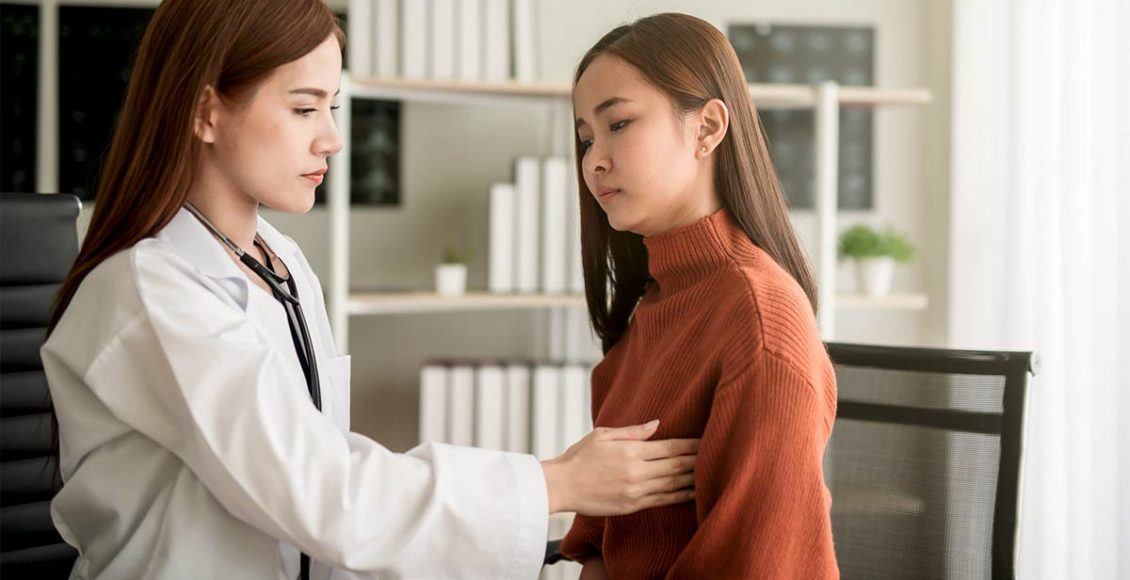Do you know what are the chances of getting breast cancer under 40?
What can you do to prevent yourself? Here’s what you need to know.
Breast cancer is often hard to diagnose at an early stage. In fact, when the tumor is still small, it typically produces no symptoms. That’s why screening examinations are crucial for early detection. Many risk factors may lead to breast cancer, including family history, genetic predisposition, and even height.
Most of the breast cancer cases are of women over 45. However, the disease can affect younger women too. According to the Centers for Disease Control and Prevention, about 11% of all new cases of breast cancer in the United States are found in women younger than 45 years of age. Although breast cancer is still extremely rare with women under 40, the risk is still there.
What are the risks of getting breast cancer?
As stated in the American Cancer Society in 2017, one in 1,567 women in their 20’s and 1 in 220 women in their 30’s are likely to be diagnosed with breast cancer in the next 10 years. These women face great challenges when they have to go to screening because doctors don’t recommend mammograms for patients under 40. They suggest ultrasounds and MRIs as better screening choice for women in their 20’s and 30’s with a higher breast cancer risk.
In case you are a woman under 40, and you are concerned you might have breast cancer, here’s what you need to evaluate.
1. Do you have a known BRCA1 or BRCA2 gene mutation?
2. Does anyone from your family has a BRCA1 or BRCA2 gene mutation?
3. Did you have radiation therapy to the chest in your early adulthood?
4. Do you have Li-Fraumeni syndrome, Cowden syndrome, or Bannayan-Riley-Ruvalcaba syndrome, or have first-degree relatives with one of these syndromes?
5. Have you been told you have dense breasts at a mammogram?
Besides, there are several other factors you need to have in mind. Some reproductive factors such as breastfeeding, hormonal birth control and taking fertility drugs, may increase the possibility of having breast cancer. Moreover, you should also consider obesity and physical activity.
How can you prevent breast cancer?
There are a few steps you should take to prevent breast cancer. First, you should collect as much information as possible. Start with learning your family history. In case you find out that a relative of yours had breast cancer, doctors recommend to screen yourself five to ten years earlier from when they were diagnosed with the condition. You may also consider genetic testing to detect if you carry the BRCA1 or BRCA2 gene mutation.
Another thing you can do is to get familiar with your breasts. You should know how they normally feel, which will help you detect a change if there is one. Sometimes self-examination is better than regular physical exams. If you notice something unusual like dimpling, size change or pain, call your doctor. You know your body better than anyone else. In addition, you should get annually breast exams.
Furthermore, you should be very careful when it comes to your diet and physical activity. In order to prevent breast cancer and other illnesses, you need to maintain a healthy body weight. This will prevent your body from increasing chronic inflammation, insulin, and hormones that promote cell growth. Moreover, you should definitely avoid alcohol because it is a carcinogen that can increase hormones in your body.
Breast cancer survivors’ advice
The best piece of advice that breast cancer survivors share is to listen to your body. No one can notice if there’s something wrong better than you. There are times when even doctors can’t detect the tumor as efficient as you. In an interview for TODAY, Trish Gauthier, breast cancer survivor, diagnosed at 37 years old, says:
“You know your body better than anyone. If something feels off, investigate it.”
Even though breast cancer is rare among women under 40, you should always be cautious. Young women are also in danger. Learn more about the risks and never ignore your intuition when it comes to your health.



